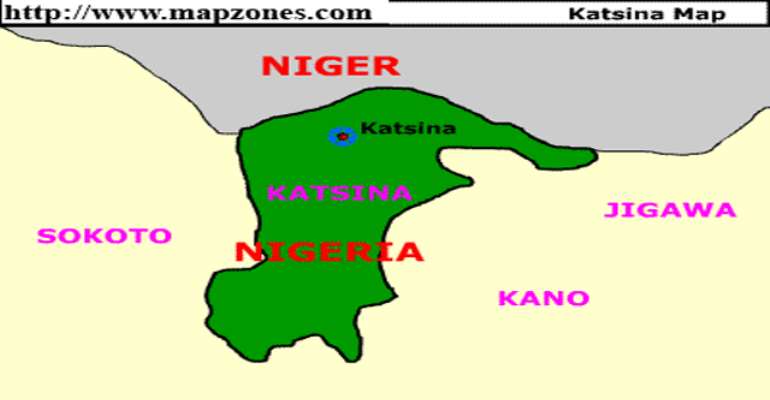Katsina govt partners CBN to boost food security

Katsina State Government has keyed into the Central Bank of Nigeria (CBN) Anchor Borrower Programme (ABP) for rice production in dry season highlighting the state Marshal plan to tackle challenges currently facing the agricultural sector, including its vision for adequate rice for local consumption and eventually for export.
At the launch of the programme at Jibia, the State Governor, Aminu Bello Masari, unfolded his restoration agenda for the sector and how administration would actualize this dream on fresh rice for the people of the state and Nigerians.
He said what is needed for adequate food security for the ever increasing population is ideas capable of generating new thinking, attitudinal change and empirical measures reflecting the essence of change.
As part of the strategies to bolster irrigation activities at the Jibia irrigation site for the farmer in the ABP on rice production, Masari said the state government shouldered the operational and maintenance costs in the interest of its people who are the major beneficiaries of the project.
'This year alone, over N58 million was expended for the repairs and maintenance of generators, water pumps and provision of diesel for irrigation purposes,' he said.
He also promised farmers in and outside of the project in the state that rehabilitation works in seven irrigation schemes of Kwanar Are, Yartsaku, Makera, Ruwan Sanyi, Daberan, Sankaya and Bakori were nearing completion.
On provision of fertilizer and key inputs, Masari said he would ensure intervention through provision of 5000 metric tones of fertilizer out of the state total stock for sales at highly subsidized rate to irrigation farmers not participating in the programme since it has a complete package of inputs integrated into it.
On the level of his preparedness to support irrigation farmers, he said: '620 units of 3 inch and 2½ inch water pumps worth N20 million have been directly purchased and will very soon be distributed. Similarly, contracts for the rehabilitation of Daberan, Ruwan Sanyi and Masari dams at the estimated costs of over N250 million, N118 million and N30 million respectively have been awarded.'
In the area of mechanization, the state government, Masari assured, is making efforts to provide to its farmers about 300 tractors, 1000 power tillers and 300 irrigation kits among others in the shortest possible time, adding that the state is making consultation for the establishment of rice research centre in Daudawa with a huge ware house in Dandume.
He explained that the government is setting up a tomato factory in Kakumi in conjunction with National Research Institute of Chemical Technology (NRICT) at a total cost of about N35 million.
According to him, contracts worth over N171 million had been awarded for weather stations in most of the 34 local government areas in the state without such valuable modern instruments of guiding farming and agriculture had been awarded.
'The state ministry of agriculture is currently conducting farmers' data capture in order to have an authentic farmers list and the identification of soil types suitable for the planting of various crops in the state among which is that of rice.
'We are also in collaboration with some Non Governmental Organisations (NGOs) and foundations like the Comparative Africa Rice Initiative (CARI) under the John Kuffor Foundation to ensure that we leverage opportunities that come from such bodies in the interest of our state,' said Masari.
Earlier, Deputy Governor and Commissioner for Agriculture of the state, Mannir Yakubu, also disclosed that the government decided to key into the programme, saying it is a robust initiative with built in mechanism to make Nigerians reliant in line with the present administration agenda.
The Deputy Governor said the state government earmarked about eight billion which represents nine per cent of its total budget in 2017 for agriculture.
Yakubu further explained: 'The Anchor Borrower Programme is primarily a developmental initiative aimed at increasing production, processing and marketing of our local farm produce. It is also designed to help local farmers to gain access to quality inputs such as improved seeds, fertilizer, water pumps, herbicides and pesticides, credit facilities and raise their knowledge on new farming techniques.'
Part of the goals of the programme, said Yakubu who is also the co-chair of the project monitoring team, is to raise internal production of staple foods thereby conserving the nation's foreign reserve.
'It is also a practical step geared towards economic diversification particularly in consideration of the potential of agriculture in job creation, food security and its overall multiplier effects,' he noted.
